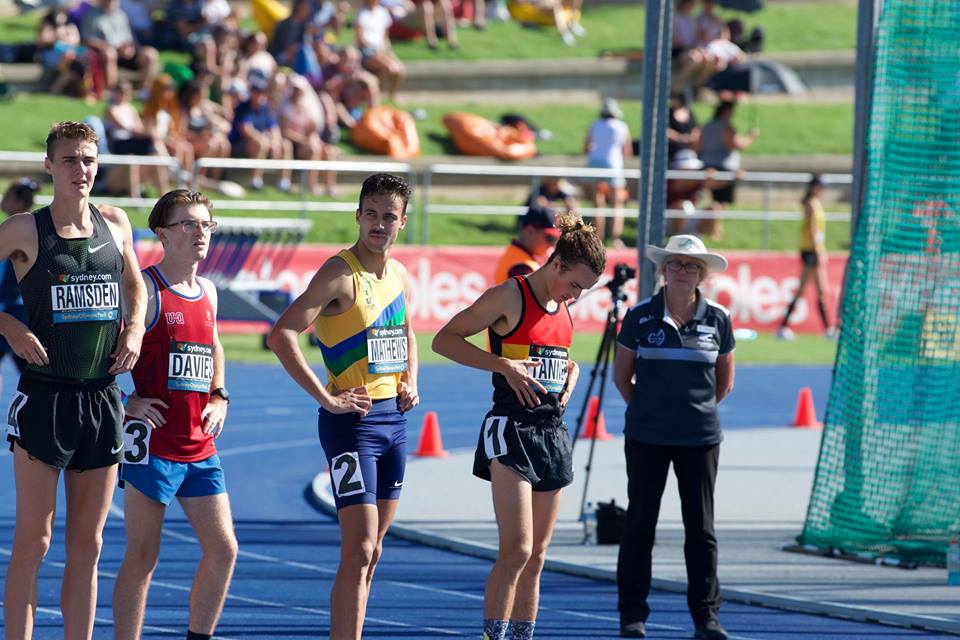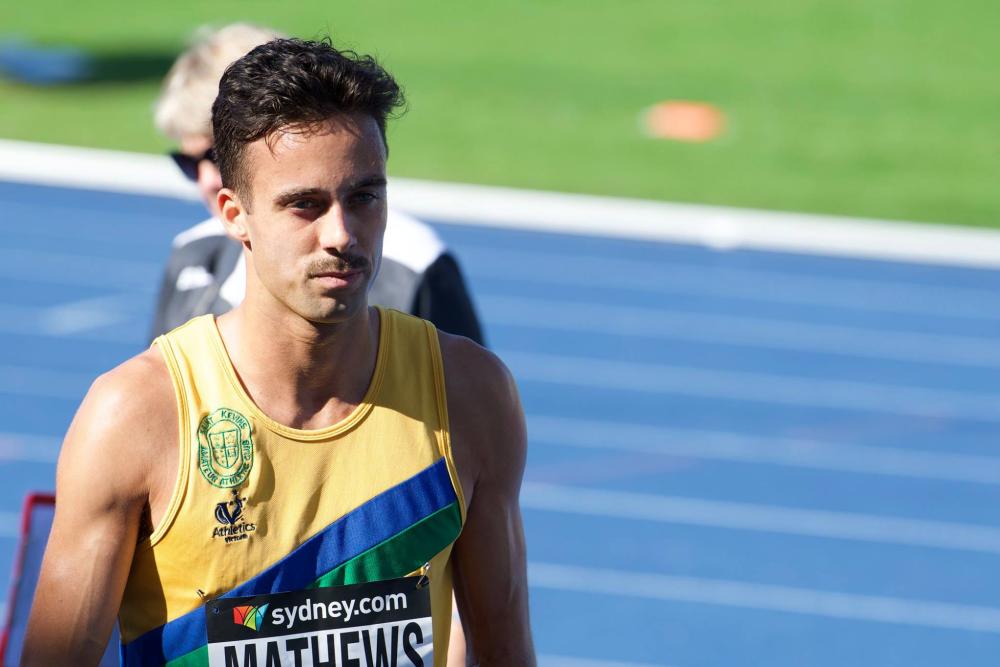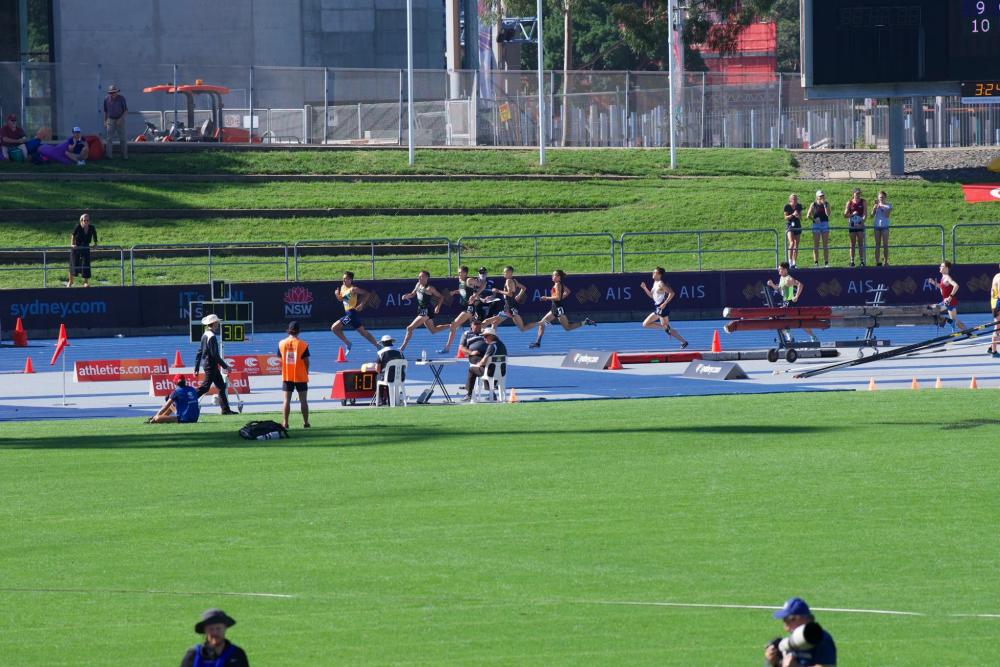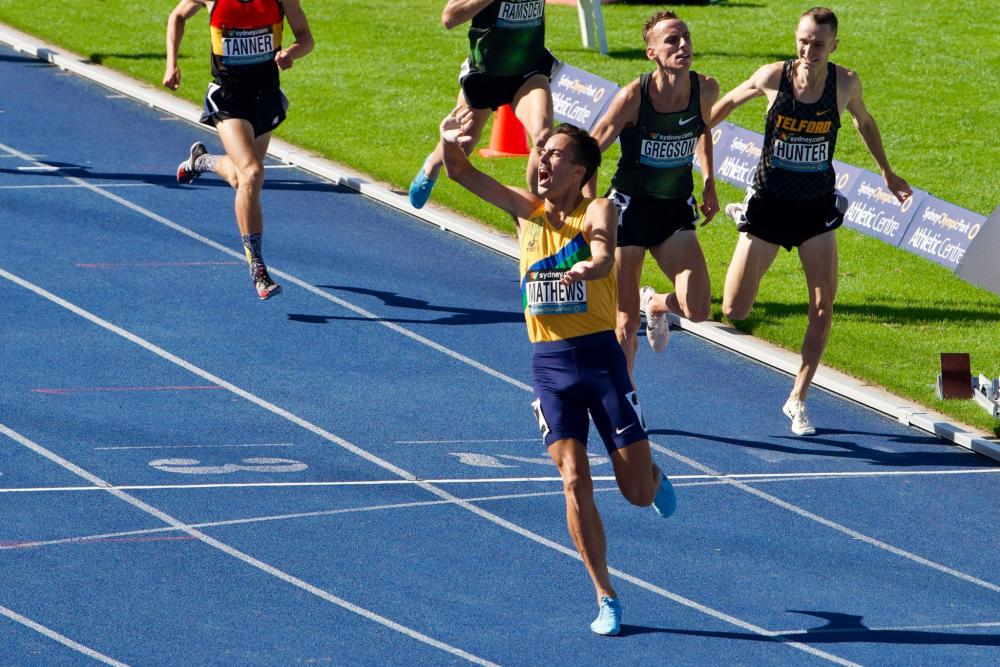Luke Mathews is the man of the moment when it comes to Aussie middle-distance running. A true 800m/1500m runner, Mathews has shown himself to be a cunning tactician. The 2018 Commonwealth Games 800m bronze medallist finished his 2018-19 Australian domestic season unbeaten, dispatching along the way huge names such as Joseph Deng, Peter Bol and Ryan Gregson.
Currently in Flagstaff preparing for the Northern Hemisphere season, we caught up with Luke to chat about his season, coaching and training.

RT: Luke, thanks for your time. Watching you this season has been pretty insane. You never looked like losing. Did it feel as easy as it looked?
LM: Thanks for having me Ross and RT! The 2019 domestic season was a huge success for me, remaining undefeated for the year and adding another national title to my CV. I’m not sure if it looked easy, because it certainly didn’t feel easy haha, and mum didn’t make the training easy I tell you that! Every race was a real challenge, but equally, it was incredibly rewarding, because I was able to run some decent races over both 800 and 1500.

RT: We all want to see you line up in some perfect fast races in Europe this year. Gregson was 20 when he broke the Aussie 1500m record. Deng was also 20 when he took the 800m record. Is this the year to get after them?
LM: Both Joseph and Ryan’s Australian records are world class times. I might win major championship medals and not break either of them. Especially Ryan’s right now. But I can almost guarantee that by the end of 2019, the 800m AR will be in the 1:43’s, because Joseph and his talented training partner Peter Bol are both very capable of that. Is this the year to get after them? Sure. It’s always a thought in the back of my mind when racing. But before I do that, I’ll be on the start line worrying about trying to win a race, not run a time. If in the process of winning I manage to run a quick time, then great. But I certainly want to have an Australian record to my name by the time I retire from this sport.
RT: In your post-race interview after winning your first 1500m national title, you stated that the only real difference between your training now compared to when you were coached by Nic Bideau is that you do more race pace work now. Can you further on this a bit? Do you mean you do more specific entire track sessions of targeted speed work or are you adding in more speed work at the end of say thresholds etc? Or both?
LM: I would say it’s a mixture of both. Depending on the time of the year, we add a little bit of stimulus at the end of a threshold/tempo session on a Thursday. For example, 10 or so days before the Jandakot Track Classic, instead of doing a standard 9-10km (30 mins) threshold run at heart rate, we opted for a 7km tempo followed by 5×400 off 60 seconds in roughly 62 seconds average. Or we might add in some 200’s or 300’s, just to keep the pop and spark in the legs. But if you were to look at my training say pre-December, we were knocking out 30-minute tempos every week, because at that time of the year, the emphasis is to get the work in and build the aerobic engine. On the other hand, we have also completely changed our approach to training on Saturday’s. In both 2018 and 2019, once I came back from Falls Creek in January, our Saturday’s were more aimed at speed endurance / lactic type sessions. Mum and I are of the belief that if you want to race at a certain pace or intensity, you have to train it. So, on Saturday’s, I spike up and almost approach it like a race, because speed endurance is always out of my comfort zone. We aim to hit 3.5km worth of work, with no rep longer than 600m, 3-4 mins recovery between each rep and each rep is anywhere between 50-58 seconds through 400. I believe this change has made me a better athlete over the final lap.

RT: In terms of pure leg speed, the sort of speed you need to run a 1:43-1:44 low 800m. What sort of sessions do you do to target this specifically?
LM:1:44 is certainly the goal for this year, and to be a contender at a world champs or Olympics you need to be running 1:44 at the minimum! I’ll leave the 1:43 running to Deng and Bol, they are too quick for me at the moment haha. But as covered before, an emphasis on speed endurance and lactic training will hopefully get me to that position. Coming from the aerobic side of an 800, speed is naturally what one lacks. So, practicing to run at race pace speeds under fatigue is what we are working on. Hopefully I can get into a quick 800 in Europe and get after it. I think I’ve outgrown my 1:45.1 from 2016.
RT: Following some of your training on Strava, your volume is impressive. Sessions like a Mona Fartlek with a short recovery straight into a 7-8 km threshold. A traditional Aussie session for a 1500m runner for many years has been just a plain old Mona Fartlek. Do you think we have all been too soft or are you an extreme dude?
LM: Haha, I don’t think that you can put Moneghetti and ‘soft’ in the same sentence. That doesn’t sit well with me. But the Mona Fartlek is usually around 6km or so. If I’m trying to work on my aerobic engine, I want to hit roughly 9-10km worth of work. So, to make that up, I usually throw in a tempo at the start or finish.
RT: Doha world champs. Let’s assume you can race the 800m or 1500m, it’s up to you. Which one do you think you have the highest chance of medalling in?
LM: I think going forward, my best chance to medal is in the 1500. My training is naturally aimed at the 1500. I do roughly 150km a week in base training, long aerobic reps and 30 minutes’ worth of threshold running a week. When looking at opportunity to medal, well, 12 people make the final as opposed to 8. That being said, I’m not ruling myself out from the 800 completely. I still have a lot of unfinished business and could still see myself making a major final.

RT: Plans between now and Doha world champs in terms of training camps, overseas races etc? Will we see you race the streets of Leonora? I know more than a few country girls who are desperate to meet you.
LM: I’m currently in Flagstaff, Arizona in a house with Sam McEntee, Cody Shanahan, Morgan Mitchell and Andy Butchart (British 13:08 5km runner). My manager – Stephen Haas – has a huge group of athletes here, so I’ll be doing a lot of jogging and sessions with his guys. I’ll spend the remainder of April and all of May here. Then I’ll head over to Europe for all of June and July to race. I’ll most likely get back into a training camp in August and September in preparation for Doha. Unfortunately, no Leonora for me this year, but I will be there in the future I can guarantee that!
RT: Favourite session?
LM: 4x3x300. I’ve only done this specific session twice; once before Pre-Classic in 2018 and also before nationals this year, and both races were pretty successful. Each rep within the set gets quicker, so the goal paces are 44/42/40 with 1-minute recovery between each rep. Between sets we have 4 minutes recovery. Both times I finished this session, I walked off the track and said to mum: “yeh I’m gonna win this weekend”. It’s great for the confidence if you hit goal times.

RT: Most dreaded session?
LM:30-minute thresholds. I hate them. But I understood the benefit to them and why we need to do them
RT: Luke, good luck, chat again soon.




